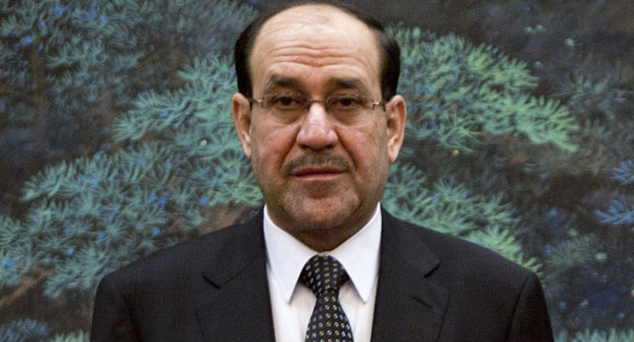On Mr Abadi’s recent visit to rally troops fighting against the Islamic State of Iraq and the Levant, or Isis, along the front lines in Tikrit, the former premier shadowed him — Mr Maliki’s interactions with cheering Shia militiamen documented on his own television station, Afaq, as if he were still armed forces commander.
Even more damaging, say officials and diplomats, Mr Maliki has allegedly been seeking to undermine key reforms to bring about reconciliation between Iraq’s Sunni and Shia, Arabs and Kurds.
“Maliki is opposed to every step the government makes,” said a high-ranking official in Mr Abadi’s cabinet: “Deep down he feels he is being betrayed and he has been treated unfairly by everybody; the US, Iran, and his own party. He seeks a comeback but it does not seem that he has a political future.”
“If the Iraqi people decide to elect me . . . I won’t decline,” he told the Associated Press last month. “But if asked personally whether I am aiming to [become prime minister] — no. I am not.”
Mr Maliki’s supporters say he is simply fulfilling his duties as both one of three vice-presidents and chief of Mr Abadi’s own Dawa party, as well as leader of a parliamentary bloc that won the most seats in the country’s elections in April last year. However, the vote took place before Iraq’s armed forces collapsed in the face of a June onslaught by Isis that revealed the frailties and corruption of the security apparatus largely built under his eight-year watch.
Critics say his supporters are mainly drawn from members of his own tribe and Shia segments of the security forces he empowered during his rule. He is widely despised by Sunni, Kurds and moderate Shia, who see him as a sectarian chauvinist surrounded by corrupt yes-men.
Although both Mr Abadi and Mr Maliki hail from the same party, a culture clash divides them. Mr Maliki grew up relatively poor in a rural district south of Baghdad and pulled himself up by his bootstraps during harsh exile years in Iran and Syria. Mr Abadi hails from a respected, educated middle class family and grew up in the cosmopolitan Baghdad district of Karada, raised by a mother of Lebanese descent. He spent his exile years running a relatively successful engineering firm in the UK, speaks English fluently and is known as a unifying figure.
Western diplomats and Iraqi politicians praise Mr Abadi for accomplishing more in six months than Mr Maliki achieved in eight years. He has removed a hated midnight curfew, in place since the 2003 US invasion, and dismantled numerous checkpoints that clogged traffic, all without any appreciable decline in security.
He has issued executive orders calling for the release of prisoners held without charge and forbidden arrests by anyone other than accredited security officials. He has also sought to engage the Kurds and improved ties with Iraq’s Sunni neighbours by reversing Maliki’s sectarian rhetoric and policies, and has been warmly embraced by the major Shia political parties.
“At the very least Nouri al-Maliki didn’t fix the problems and didn’t work on improving the situation, and he left Abadi a deep legacy of corruption and incompetence in the state’s management,” said Zuhair Chalabi, a Shia politician from Mosul.
Mr Abadi has also been praised for conferring more readily with lawmakers than his predecessor did. “He doesn’t just do things his way but he also considers and includes other parties, ministries and the parliament in the picture,” says Laila Khafaji, a Shia member of parliament.
But Mr Maliki has been accused of seeking every opportunity to undermine his successor. Critics say he has sought to sabotage government plans to ease Sunni mistrust, specifically by repealing the law that criminalises membership of Saddam Hussein’s Ba’ath party and allowing for the creation of national guard units loyal to provincial governors, organising demonstrations and speaking out in public.
He has also sought to rally opposition to a deal to end hostilities between Baghdad and the Kurdistan Regional Government, seeking to whip up the perception among Shia during trips to the south that Mr Abadi is giving away too much, say critics.
Most worrying to Abadi supporters is the risk that Mr Maliki’s theatrics, including his continued habitation of the palace, could make the premier look weak and indecisive, paving the way for a surging strongman.
“Abadi is a kind, decent man,” said Ahmed Abiyadi, a political commentator. “But the legacy of Maliki is huge. Abadi needs to take on Isis and then corruption. He needs to go back to Sunni and regain their trust in government. He will also face problems with Kurdistan. I think Abadi needs to change direction from employer to leader.


 RSS Feed
RSS Feed